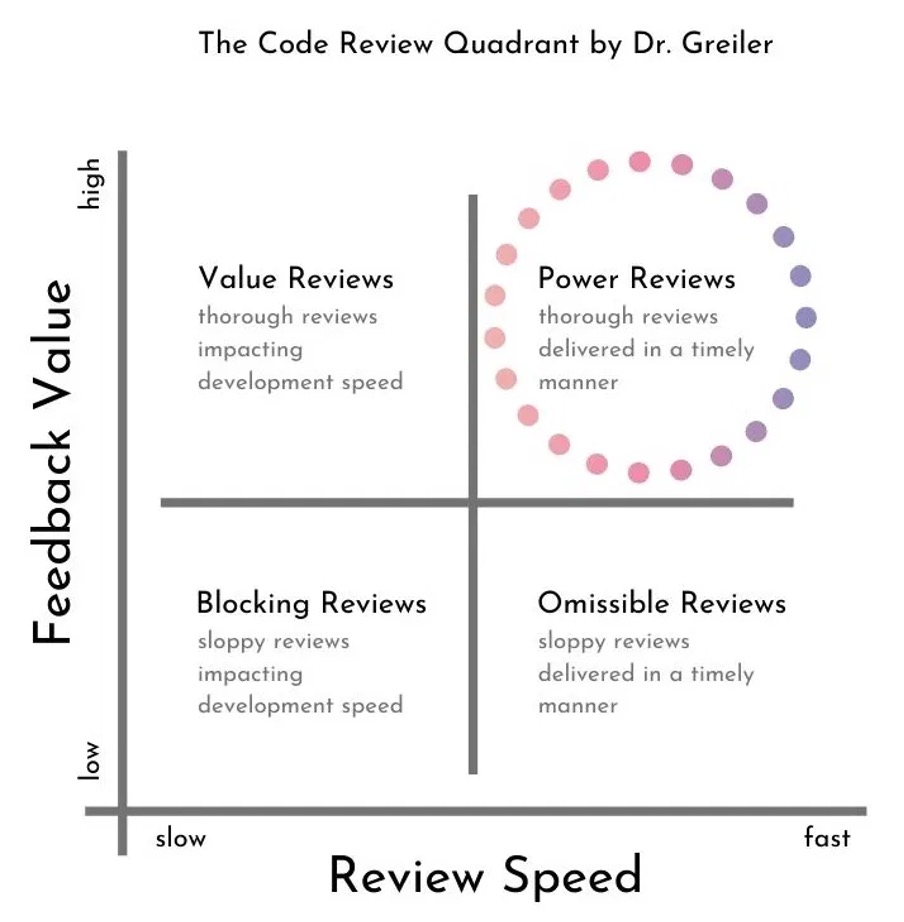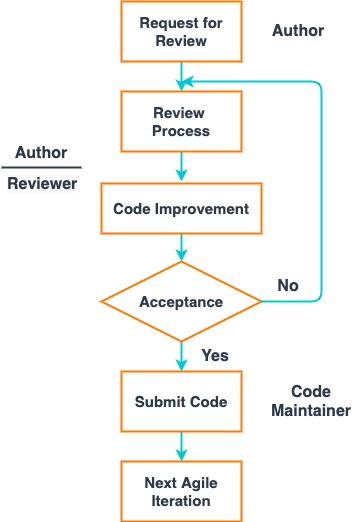There are many methods that help in the development of software and information systems. If we take a close look at the general software development cycle, it will be clear that a big part of this process is working with source code.
A methodology such as code review plays an important role in the development process. It not only improves the code itself but also simultaneously solves a lot of problems associated with the information project as a whole. Regular code review helps to eliminate a number of errors related to the logic of the system operation, helps for the correct planning of architecture development, and improves test planning for the next stages.
Code inspection can find and fix issues such as string formatting errors, race conditions, memory leaks, and buffer overruns, which improves the security of the software product. Version control systems make it possible to conduct joint code inspections. In addition, there are dedicated tools for collaborative code inspection.
What is code review?
Code Review is a systematic review of the source code of a program in order to detect and fix errors that went unnoticed in the initial phase of development, improve the project architecture and develop system maintenance practices. The purpose of code review is to improve the quality of a software product and improve the skills of the team consisting of all project participants - architects, developers and testers, and so on.
Code review solves two very important tasks that cannot be solved in any other way: synchronization of mental models and spreading knowledge about code.
Other parameters and indicators in the project, such as quality, correctness, etc. can be analyzed using special development tools, but you can understand the code only by looking at the code.
Synchronization of mental models
People can approach problem-solving in different ways. Depending on their own experience, knowledge, and skills, they use various algorithms, data structures, approaches to locks, and templates. If these approaches are not synchronized with each other, then, even in a small team, the complete solution will be a patchwork of approaches, patterns, and structures. The review allows you to identify such inconsistencies and open a dialogue to bring the code to a more homogeneous form.
Dissemination of knowledge
In order to make changes to the code, you need to know where to change and what to change. The review allows you to expand the boundaries of knowledge about the code, especially for new project participants. The past review will remind you that "the function of checking the phone number code was somewhere in the module, approximately in the Phone class." even if you only read this code once a few years ago. If you really figure out what the code does, then you can make changes to it.
The main point of Code Review is that any changes made by the programmer go into the main code repository and the release version of the software only after they have been reviewed by other team members.
This process consists of several stages. First, the developer adds new functionality to the code and notifies other contributors to check for these updates.
In the second step, team members, or reviewers, review the code and leave their comments. Some Code Review companies focus only on finding bugs, but to really improve the quality of the code, you also need to point out architectural flaws, misuse of tools, and poor writing style: incomprehensible or poorly perceived.
This is followed by work with comments. If the reviewer does not agree with any claim, he/she can reject it, but this requires convincing arguments in defense of the position. If there are no objections, the necessary corrections are made.
Then everything is repeated from the beginning and the process happens systematically, every time a new portion of changes is made to the code.
The role of code review in software development
These are the main benefits of code review:
- increases clarity of the overall system because the author is forced to bring the code to a form that it is understandable for reviewers
- forms a common vocabulary for code-level communication
- it is a catalyst for the development of general agreements on the design of the code, i.e. code convention not from document to code, but from practice, directly from the code
- reduces the number of vulnerabilities in the code
Modern code review practices confirm that both manual code review and automated code review tools can help you complete your code improvement tasks. Automated code inspection software makes it easy to review large chunks of code by systematically scanning it for the best-known vulnerabilities.
As explained in an article by Dr. Michaela Greiler, the quality of the review depends on the feedback value and review speed. This affects the speed of development and the quality of the project. This can be thought of as a quadrant, as shown in the figure below.

Code review and agile methodology
A highly respected article from Atlassian talks about the importance of the code review process with a succinct and clear definition: “Every team can benefit from code reviews regardless of development methodology. Agile teams, however, can realize huge benefits because work is decentralized across the team. No one is the only person who knows a specific part of the codebase. Simply put, code reviews help facilitate knowledge sharing across the code base and across the team.”
In the process of working on an agile project, the code review technique is very important. The roles "Authors," "Reviewers" and "Code Maintainer" take part in the process.
As a result, we get more stable code and improvements in the project in organizational and technical directions. You can see the code review process in the picture below.

In Scrum methodology for managing the development of information systems, the code review method fits very well both within iterations and within the framework of a single task.
“Ken Schwaber and Jeff Sutherland (the co-founders of Scrum) say code review is necessary for Scrum. Specifically, that code isn't "done" until it's been code reviewed.” This is mentioned by Jason Cohen in his great article “Scrum and Code Review -- they go together like beans and cornbread”.
The quality of the source code before and after code review among developers and testers is judged by the following properties:
- Perception. The code is not overloaded with complex constructs, so it is easy to understand even without additional documentation or comments;
- Accompaniment. Well-thought-out code makes it easy to make changes in configurations or even platforms;
- Expansion. It is easy to add new functionality to it without the risk of breaking the coding algorithm. Even if there are any problems, they can be quickly eliminated;
- Broadcast. Good code can be passed on to other developers for support or revision, and they won't have any trouble reading it;
- Test coverage. The higher the percentage of code coverage by tests, the more likely it is to avoid unnecessary bugs in the future.
Conclusion
In conclusion, we note that code review is absolutely necessary when developing software products.
This part of the process becomes all the more relevant in modern conditions when the amount of code and functionality of information systems increases every year.
The qualifications of Svitla Systems developers allow us to develop software for large projects, and code review is an important part of compliance with all product quality assurance processes.
Regardless of the programming language in which the project is being developed, code review will always help with the development, whereas any other methodology will not give such a high-quality result.
It is sometimes thought that senior software developers can write code and develop a project so well that there is no point in wasting time on code review. But in fact, it has been proven in practice that code review is necessary regardless of the qualifications of the project participants. For competent and highly qualified software developers, this is already part of the production culture; they like this process and recognize that it really brings a lot of useful solutions.
This process is useful both for the project itself and for the team, which develops and improves during the code review, and at each next iteration of the Scrum methodology, the development process itself improves, and the goals are achieved easier and faster.





